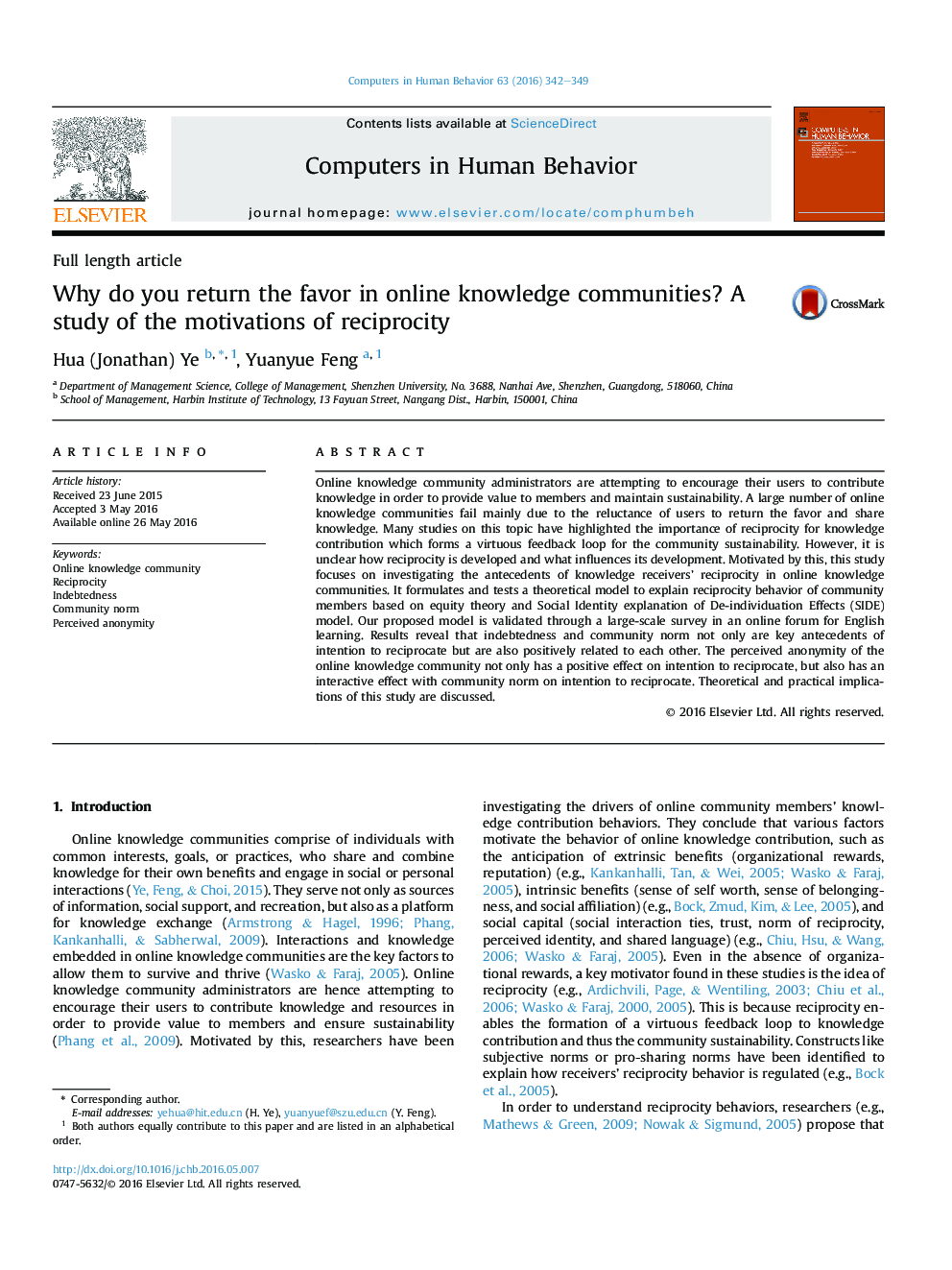| Article ID | Journal | Published Year | Pages | File Type |
|---|---|---|---|---|
| 6836679 | Computers in Human Behavior | 2016 | 8 Pages |
Abstract
Online knowledge community administrators are attempting to encourage their users to contribute knowledge in order to provide value to members and maintain sustainability. A large number of online knowledge communities fail mainly due to the reluctance of users to return the favor and share knowledge. Many studies on this topic have highlighted the importance of reciprocity for knowledge contribution which forms a virtuous feedback loop for the community sustainability. However, it is unclear how reciprocity is developed and what influences its development. Motivated by this, this study focuses on investigating the antecedents of knowledge receivers' reciprocity in online knowledge communities. It formulates and tests a theoretical model to explain reciprocity behavior of community members based on equity theory and Social Identity explanation of De-individuation Effects (SIDE) model. Our proposed model is validated through a large-scale survey in an online forum for English learning. Results reveal that indebtedness and community norm not only are key antecedents of intention to reciprocate but are also positively related to each other. The perceived anonymity of the online knowledge community not only has a positive effect on intention to reciprocate, but also has an interactive effect with community norm on intention to reciprocate. Theoretical and practical implications of this study are discussed.
Keywords
Related Topics
Physical Sciences and Engineering
Computer Science
Computer Science Applications
Authors
Yuanyue Feng, Hua (Jonathan) Ye,
